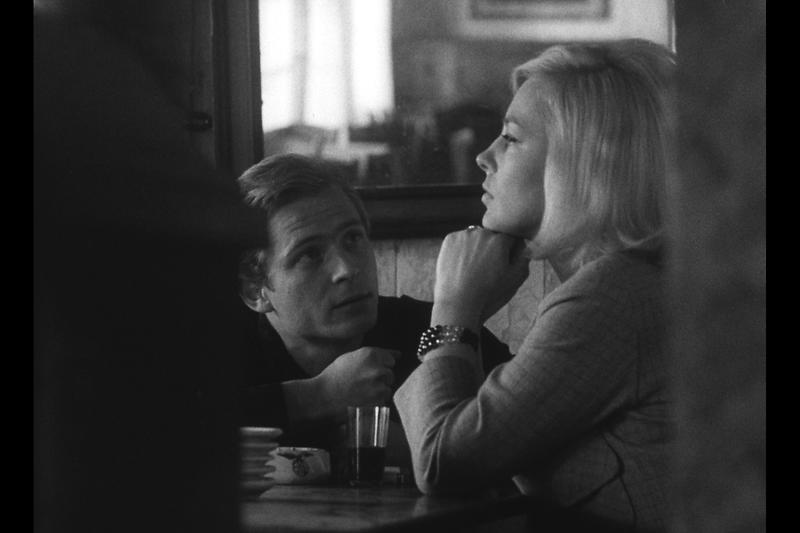
O NĚČEM JINÉM
SOMETHING DIFFERENT

This film not only combines two different narratives, but also two different styles. Fictional scenes from the life of Czechoslovak housewife Vera are juxtaposed with documentary footage of the real-life Olympic gold medallist Eva Bosáková. The two plots remain separate and yet the film's offbeat structure creates an indirect connection, the meaning of which is conveyed through the art of cinematic language. SOMETHING DIFFERENT is the first feature film from cult Czechoslovak New Wave director Věra Chytilová. At the same time it is one of the first films that, instead of engaging in moral lessons in the sense of socialist ideology, is dedicated to an honest depiction of everyday life.
Kammerbühne: original version with English subtitles + German simultaneous translation
Event information
SlowTalk on "Women in Socialism and After".Wed 09.11. 20∶30 h | Slow, Glad-House
The talk will focus on DEFA film with its diverse portrayal of women's roles as well as female filmmaking in the GDR. What have we retained as a legacy of this to this day, and what does the current film business look like for women filmmakers? This event will also include the presentation of the e-book "She. Female directors of DEFA and their films", edited by Cornelia Klauß and Ralf Schenk, will take place.
Věra Chytilová
Jan Čuřík
Miloslav Hůrka
Miroslav Hájek
Vladimír Labský
Eva Bosáková, Věra Uzelacová, Josef Langmiler, Jiří Kodet, Milivoj Uzelac ml., Jaroslava Matlochová, Luboš Ogoun, Vladimír Bosák, Dagmar Cejnková
Filmové studio Barrandov

Věra Chytilová - Perhaps the most innovative director of the Czech New Wave of the 1960s, Věra Chytilová, was born on February 2, 1929 in Ostrava. While working as a clapper girl at Barrandov Studio, she was accepted to the Prague film school FAMU. During the years 1957–1962 she studied direction under the veteran Czech film director Otakar Vávra. In her schoolwork, she was visibly influenced by cinéma-vérité documentaries and formalist modern European movies. The same was true for her first feature film, Something Different (1963), which intercuts the life of a real gymnast with a fictional story of a housewife. Chytilová is probably best known for her second film, the Dadaist, surrealist and feminist hymn to creative imagination Daisies (1966). After the Soviet invasion in 1968, she wasn't allowed to shoot feature films for a few years. Then she returned with the acerbic comedy of manners The Apple Game (1977). Her satire about social reality of socialist community called Panelstory (1979) was so provocative that it could be seen only on the outskirts of Prague. After the fall of Communist regime, Chytilová completed many penetrating documentaries and four more features satirising capitalism and revealing her still equally strong moral stance. Věra Chytilová died in Prague at the age of 85, on March 12, 2014.